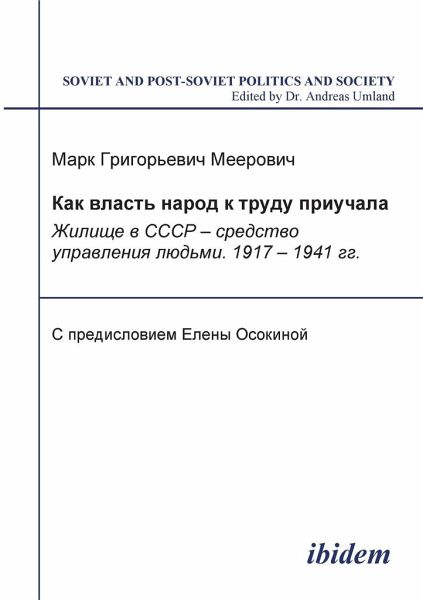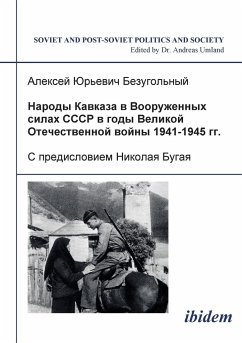
Kak vlast' narod k trudu priuchala. Zhilishche v SSSR - sredstvo upravleniia lud'mi. 1917-1941 gg. S predisloviem Elena Osokina
Versandkostenfrei!
Versandfertig in 6-10 Tagen
22,90 €
inkl. MwSt.

PAYBACK Punkte
0 °P sammeln!
State housing policies in the USSR, from the first days of its existence, were based on the use of living space as a powerful and effective means to make people work for the state or to punish them for not doing so.Transforming individual apartments into municipal and communal ones (instead of pokomnatno-posemeinogo settling), they used housing as a means of compulsion to labour - only those who were workers or employees of the state factories and establishments received living space. Workers who were dismissed or independently abandoned their work place also lost the living space occupied by ...
State housing policies in the USSR, from the first days of its existence, were based on the use of living space as a powerful and effective means to make people work for the state or to punish them for not doing so.Transforming individual apartments into municipal and communal ones (instead of pokomnatno-posemeinogo settling), they used housing as a means of compulsion to labour - only those who were workers or employees of the state factories and establishments received living space. Workers who were dismissed or independently abandoned their work place also lost the living space occupied by them.The book is based on official decrees of the Soviet authorities. It describes the process of transformation of flats and rooms from spheres of private life into instruments of control of the people in the USSR. The basic patterns of housing ownership during 1917-1941 are detailed - state, "vedomstvenno-state", "state-cooperative", and "privatel-state".














